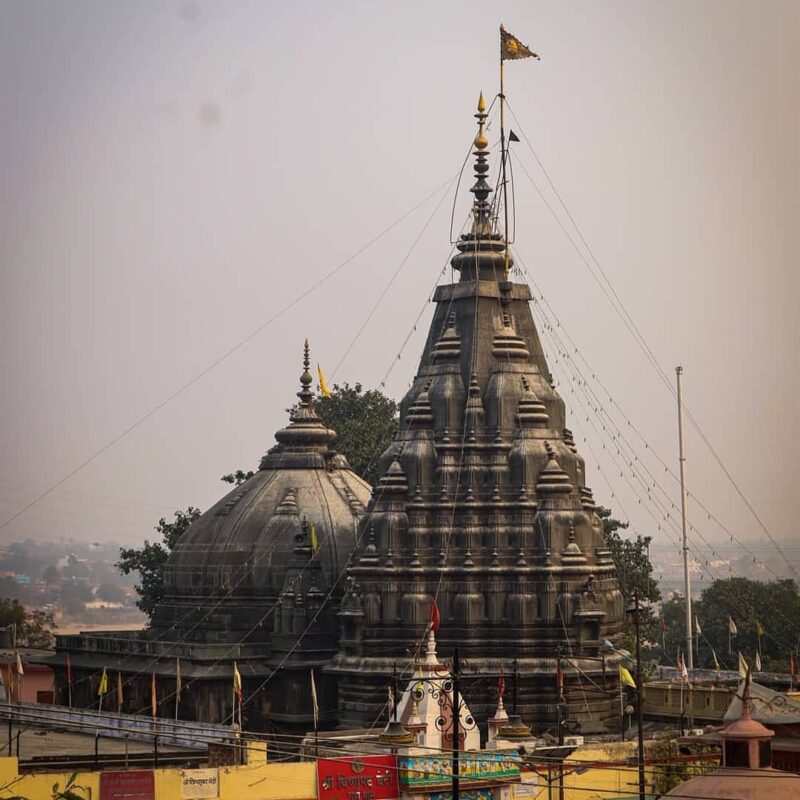In Hindu tradition, it is the duty of every individual to perform Shraddha for their ancestors. The scriptures mention Pitru Paksha, a period dedicated to making offerings to departed souls. During Pitru Paksha, Shraddha rituals and Pind Daan hold special significance. These rituals are conducted at various pilgrimage sites across India during this 15-day period.
The scriptures extol the virtues of these pilgrimage sites. By performing rituals such as Tarpan and Pind Daan, and by seeking peace for ancestral spirits, devotees believe their ancestors attain eternal peace and satisfaction. As a result, countless people visit these sites annually to honor their ancestors.
This article explores eight renowned pilgrimage sites famous for Shraddha, Tarpan, and Pind Daan. These locations are significant destinations where one can perform these sacred rituals.
1. Gaya, Bihar
The Vishnupad Temple in Gaya is a renowned site for performing Shraddha and Tarpan. Gaya Ji Tirtha is highly praised for these rituals, more so than any other pilgrimage site. Every year, millions of Hindu devotees visit Gaya for Pind Daan.

It is believed that after death, the ancestors wait on the leaves of the tree at the Vishnupad Temple until their descendants perform Pind Daan. During Pitru Paksha, staying in Gaya for 15 days to perform Pind Daan on the banks of the Falgu River is considered highly meritorious. Offering Pind Daan at Gaya is believed to ensure salvation for the ancestors.

2. Kashi, Uttar Pradesh
Kashi, also known as Varanasi, is the oldest city in the world. The Manikarnika and Dashashwamedh Ghats in Kashi are particularly significant for Pind Daan and Tarpan. It is said that the rituals performed here are accepted by Lord Shiva and Bhairava, granting salvation to the ancestors.
Situated on the tip of Lord Shiva’s trident, Kashi is believed to remain eternal, even during the apocalypse. Death is considered highly significant in Kashi, and people often come here to spend their last days.

3. Dhruv Ghat, Mathura
Mathura, the city of Lord Krishna, is one of the five most important places for offering prayers to ancestors. Among the 24 ghats on the Yamuna River, Dhruv Ghat is particularly significant for Tarpan and Pind Daan. The scriptures recount that Dhruva, the son of Maharaja Uttanpad, performed Pind Daan here for his ancestors, and Lord Vishnu granted him residence in Vaikuntha Loka.

4. Hari Ki Padhi, Haridwar
Hari Ki Padhi, meaning “Steps of Lord Hari (Vishnu),” highlights its sacredness. Haridwar, also known as Mayapuri, is home to several important sites for Pind Daan, Shraddha, and Tarpan:
- Hari Ki Paidi Ghat
- Tri-Ganga
- Shakrawart
- Narayan Shila
- Kankhal Dham
Each of these locations has specific rituals. For example, at Narayan Shila, rituals for the salvation of ancestors appearing as ghosts are performed. At Kankhal, Shraddha for ancestors who died untimely or violently is conducted, including the Pind Daan performed by Lord Shiva for Goddess Sati.
5. Dev Prayag, Uttarakhand
Dev Prayag, where the Alaknanda and Bhagirathi rivers converge to form the Ganga, is a highly sacred site in Sanatan Dharma. King Ramchandra performed Tarpan here for his father, King Dasharatha. The Tarpan performed at Dev Prayag is believed to provide complete liberation and satisfaction to the ancestors.
6. Triyugi Narayan Temple, Uttarakhand
The Triyugi Narayan Temple, known for being the marriage venue of Shiva and Parvati, also features the Saraswati Kund where Tarpan rituals are conducted. This temple, over 18,000 years old, is dedicated to Lord Vishnu and his consorts, Lakshmi and Saraswati. The rituals performed here are believed to offer peace to ancestors due to the blessings of Lord Shiva and Vishnu.
7. Brahma Kapal Shila, Badrinath
Located near the Badrinath Temple, Brahma Kapal Shila is known as the Supreme Court of Pitra Tarpan. After performing Shraddha here, no further rituals are needed. Lord Shiva granted a boon that Pind Daan and Shraddha performed here would provide immediate freedom from sins and ghostly existence. The Pandavas performed Shraddha here for those who perished in the Mahabharata war, following Lord Krishna’s advice.
8. Pehowa Tirtha, Kurukshetra, Haryana
Pehowa Tirtha, on the banks of the Saraswati in Kurukshetra, is a site of great significance for Pind Daan. Its ancient name, Prithudak, signifies the place where Maharaja Prithu performed the last rites for his father. The Mahabharata and various Puranas mention the importance of this site. Rituals performed here are believed to grant immortality. These eight pilgrimage sites are renowned for their significance in performing Shraddha, Tarpan, and Pind Daan, ensuring peace and liberation for the ancestors. Visiting these places and conducting these rituals honors the departed souls and fulfills a crucial duty in Hindu tradition.








One Comment